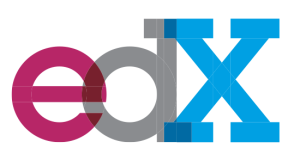MOOC – Higher Education For The Masses
MOOC: It sounds like an ultra, top, super-secret military program or maybe some new teenage catchphrase. In reality, MOOC stands for Massive Open Online Courses, and it is being hailed as the solution for higher education in poverty stricken or developing countries.
In a nutshell, universities grant open access to whoever wants to take their courses. Prospective students can then scroll through the course list, and choose the courses they like. As long as the student fulfills the course requirements, hands in all the papers and completes all the tests on schedule and according to the course’s demands, they earn college credits for that course. Sounds simple, really, and it really is that simple.
MOOC’s can trace their origin back to 1999 when Germany’s University of Tübingen published videos of some of their lectures online. It took off, however, in 2001, when MIT began providing bare-bone versions of their courses online, open to all. These courses soon drew millions of visitors. It wasn’t long until the OpenCourseWare Consortium was started, which contained hundreds of universities and institutes of higher education sharing their courses online. YouTube and broadband moved the process along, and in 2011, free Stanford courses online were registering over 100,000 signups.
The advantages to these courses are obvious: easy access. Higher education is now within reach, and the cost of education drops immensely. In their article “Fad or Future: The Advantages and Challenges of Massive Open Online Courses (MOOC’s),“ Chen, Barnett and Stephens write that “[a]ccessibility, student engagement, and experiences for lifelong learning are recognized as the advantages of MOOC’s.”
One example of someone leveraging the benefits of MOOC’s is Laurie Pickard. If everything goes according to her plan, she will complete an M.B.A in three years of study and for less than $1,000. Her M.B.A will include courses from Stanford, Yale and Wharton and other top institutions, all while working a full time job. In addition to the above achievements, Pickard will be doing all of this from Kigali, Rwanda, where she moved with her husband, a Foreign Service officer.
Two of the biggest names in MOOC’s are Coursera, with 5 million users, and EdX, with 1.3 million users. In her article, “How the Educational Establishment Is Embracing Technology,” Angela Chao states: “EdX aims to become the resource of choice for educators and students on the subject of technology as a transformative agent in the mission of improving classroom and online learning.”
However, MOOC’s are an important alternative and supplement to more traditional forms of receiving education. Some students are not benefiting from MOOC’s and, even worse, are even being adversely affected by them. Chen, Barnett and Stephens write that “[a]mong the most common challenges are individual instruction, student performance assessment, and long-term administration and oversight.” Angela Chao writes that one hurdle to be addressed for the MOOC student “is the isolation that the student feels when sitting alone in front of the computer screen.”
So where does the balance lie? It would seem by the exponential growth of MOOC providers there is definitely a market for online learning of this scale. Not only that, but MOOC’s have finally succeeded in achieving something that no one has succeeded in doing for decades, perhaps even centuries: MOOC’s are changing the way universities and other institutes of higher education deliver education.
According to Antonio Regalado of the MIT Technology Review, if MOOC’s do succeed in creating something different, an alternative to the traditional education experience currently being offered, then “online learning will be the most important innovation in education in the last 200 years.”
The explosion of MOOC’s, the benefits they offer to students who otherwise wouldn’t have access to higher education, the potential for growth and the variety offered, all point to the benefits far outweighing their disadvantages. Time magazine has stated that free MOOC’s open the door to the “Ivy League for the Masses.”
However, probably the best summary of MOOC’s advantages was provided by Angela Chao: “MOOC’s have the potential to drastically level the playing field of higher education, making it accessible to all and thereby contribute tremendously to the preparation of the world’s next generation of global leaders.”
For an updated list of MOOC from several schools visit MOOC-list.com





